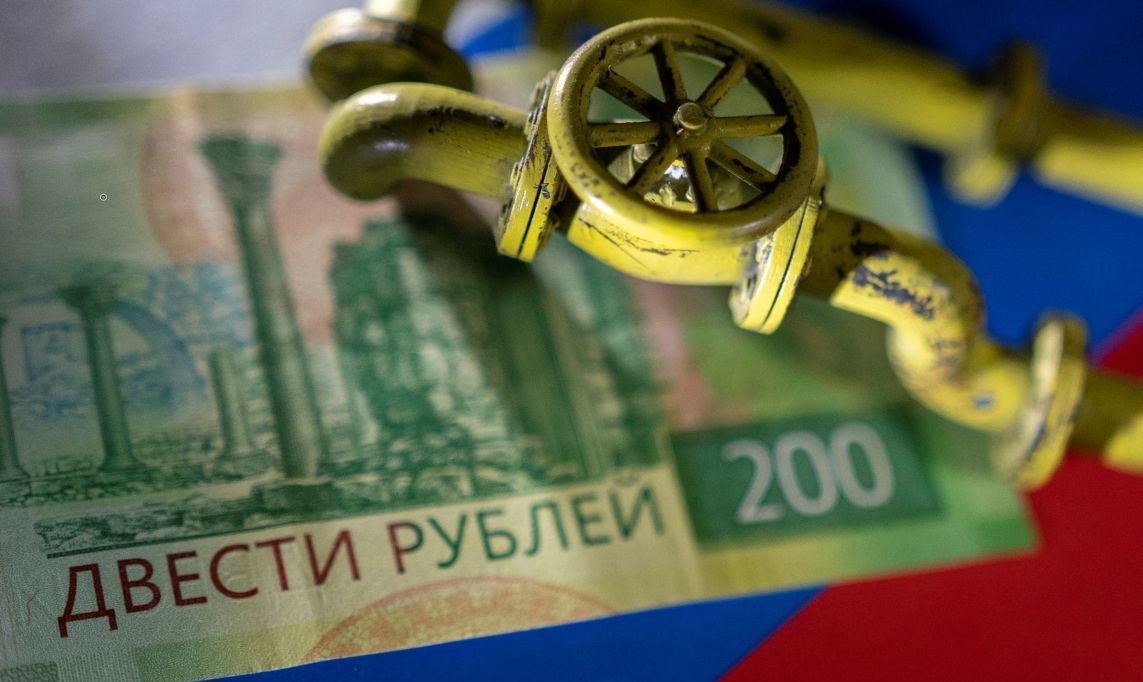
According to the Washington Post, European energy companies finally accepted Russian President Vladimir Putin's demand to pay for natural gas in rubles. It was a difficult decision. However, it helped to avoid disruptions in the supply of the necessary raw materials.
In general, the new Kremlin's demands are beneficial to both Russia and the EU. Under the new mechanism, European companies will have to open two accounts: one in rubles and one in euros in Gazprombank. Technically, this means that the EU will still pay for Russian natural gas in euros. Moreover, Russia will not incur any losses as it will receive the required payment in rubles.
The West managed to reduce its anxiety over violating its own sanctions. However, the fact that the EU countries bent to Putin's new payment demands means that they are still dependent on Russian gas despite their plan to impose a total ban on Russian energy imports.
In fact, the current situation is very complicated. The EU has agreed to pay for gas in rubles. However, at the same time it strongly condemns Putin's regime and imposes sanctions against Russian businessmen. On top of that, the EU continues to supply arms to Ukraine.
Russia in turn has imposed strict capital controls and raised interest rates to stabilize the ruble. Consequently, the EU has conceded and moderated its ambitions so far. Moreover, the bill payment deadline is coming this week. Therefore, a significant strengthening of the ruble is most likely.
If the EU rejected the Kremlin's new demands, mostly European consumers would be hard hit as they would have to face soaring electricity prices. Moreover, they are already forced to pay higher prices for electricity than in the past years.
At the same time, Poland and Bulgaria suffered severely compared to other European consumers of Russian gas as Gazprom cut off gas supplies to them at the end of April. The Russian energy giant made this decision in response to the refusal of Polish and Bulgarian governments to accept a new payment system. Russia also suspended gas deliveries to Finland which decided to protect its own interests and applied for NATO membership.
The rest of the EU countries implemented more rational policy. It will help them to overcome new economic challenges.
As for the EU violation of its own sanctions, the situation is ambiguous. Last week, European Commission Chief Spokesperson Eric Mamer clearly stated that opening an account in rubles would be a gross violation of the sanctions against Russia. However, only a day later, European Commissioner for Economy Paolo Gentiloni gave the go-ahead to a new payment scheme.
Italian officials admitted that the new scheme did not violate the EU sanctions as the Central Bank of Russia was not concerned with the process of converting euros into rubles. Moreover, Eni received written assurances about this fact. However, even if any European company decided to pay for gas in rubles immediately, there would be no violation of the sanctions either as the EU had not imposed sanctions against the Russian ruble.
Russian Deputy Prime Minister Alexander Novak said last week that about half of the 54 Gazprom's foreign clients had already opened ruble accounts.
The EU attempts to impose a ban on Russian energy have failed so far. Most EU countries support a very ambitious plan to phase out Russian oil imports. However, it is not implemented due to the countries that are still dependent on Russian raw materials, for example Hungary. Moreover, gas issues are even more complicated as gas is extremely important for the EU: Russia accounts for 40% of EU's natural gas imports. The European Union only declared its intention to cut its gas supplies by two-thirds by the end of the year. However, it did not impose a total ban on Russian gas imports.
Meanwhile, Henry Hub gas futures have risen above $9 for the first time since 2008, stopping short of the long-awaited $10. Despite the promise to build a future supply, market participants lost their patience due to the heat and risks of a hot summer. Therefore, they have tried to discover ways to curb short-term demand. According to forecasts, the coming summer is likely to be hotter than normal. This outlook will further raise expectations of increased demand.





















